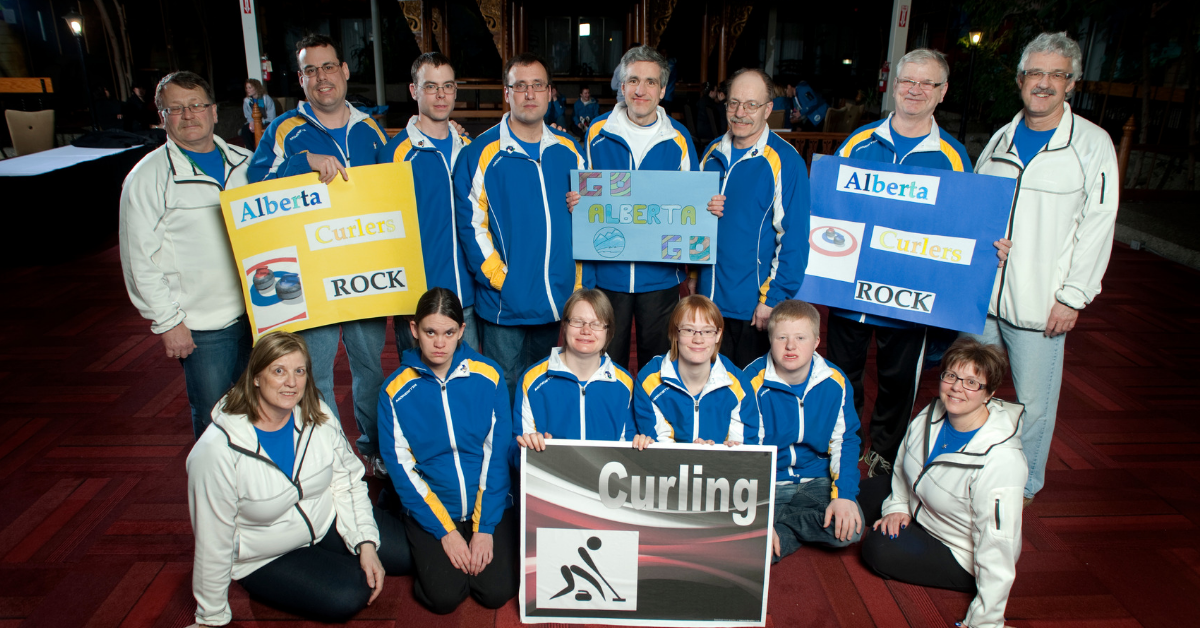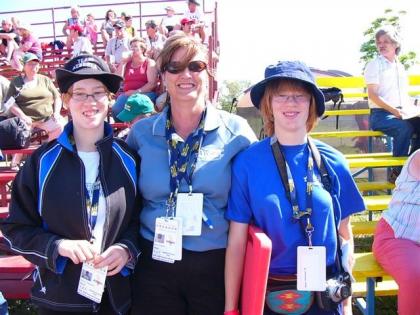After 35 years as a Special Olympics Alberta coach, Red Deer’s Heather Roberts can still recall the first – and most important – lesson she learned.
In 1986 – only three years into volunteering – she was selected to travel with Team Alberta as its Athletics Coach for the National Games in Calgary.
There was a non-verbal athlete on the team with physical and cognitive issues. Roberts worried the trip would be difficult for her, so she suggested she not attend.
“I was overlooked, thank goodness,” Roberts said. “She ended up attending, and while she didn’t medal, she had a wonderful time.”
During the closing ceremonies, a slide show of images from the competition flashed across a screen.
“There was a picture of her coming across the finish line,” Roberts recalled. “She just raised her arms and just squealed – she knew it was her.”
“Knowing how much that meant to her, to be included and compete at the national level – I learned to never pre-judge. That almost makes me cry to even think about.”
Three decades of experiences like this have shaped Roberts into the coach – and person – she is today.
She first became a Special Olympics coach in 1983 while living in St. Paul, Alberta, about two hours northeast of Edmonton.
She quickly “got hooked.”
She’s since coached bowling, swimming, floor hockey and athletics, helped organize an annual Slo-Pitch Tournament in St. Paul, continued volunteering and raising awareness of Special Olympics as she moved to Rocky Mountain House and then Red Deer in the early 1990s. She’s coached at a number of National Games, developed Red Deer’s Special Olympics curling program and was named Special Olympics Alberta’s Female Coach of the Year in 2004.
She also advocates for individuals with intellectual disabilities outside of Special Olympics. During the day, she works for Catholic Social Services, where she helps people with disabilities find work. She also volunteers for other sport organizations where she advocates for an inclusive sport community across the province.
According to Graham Kryzanowski, a 41-year-old Special Olympics Alberta athlete, Roberts is more than a coach in their community.
“I’m always comfortable with her,” he said. “Anything with life, I can turn to her. She’s a friend.”
She’s also a mentor to fellow coaches, volunteers and families, said Marie Payne, a coach and mother to 27-year-old twin athletes Chantal and Thomasina.
“Heather took me under her wing and mentored me as a parent,” she said. “Now I’m her assistant coach … she’s taught me – and my daughters – a lot.”
While Roberts has helped transform the lives of countless athletes and families, she remains humble and grateful for what Special Olympics has done for her personally.
“I’ve certainly gotten way more out of my involvement with the organization, with the athletes, with other coaches than I have ever given,” she said.


